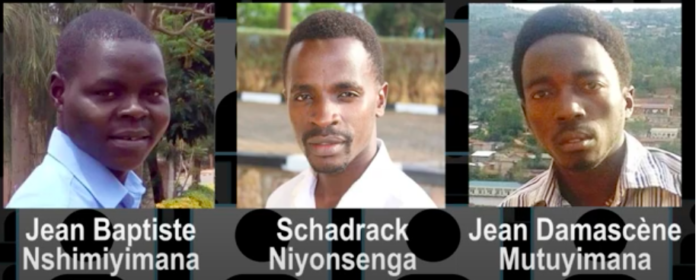By The Rwandan Lawyer
1.Introduction
Under Article 34, freedom of the press and information are guaranteed, as long as it doesn’t prejudice public order and good morals. While there has been a loosening of controls over online media and radio talk shows, particularly in the dominant Kinyarwanda language, there are still restrictions—with serious penalties—for journalists who miscalculate the unstated, vague, and apparently arbitrary limits on what they can report. A long list of detentions, threats, and court cases over the past 20 years hangs over those who risk the wrath of the government, according to journalists I spoke to. This occurred to three Rwandan journalists who reported information on civil war which was taking place in the southern region of Rwanda and three years passed without any trial on the validity of the provisional detention nor trial on the merits.
2.Facts
Three journalists named Shadrack NIYONSENGA; Jean Damascene MUTUYIMANA and Jean Baptiste NSHIMIYIMANA who were working Iwacu TV have already undergone three years of provisional detention; prosecuted for spreading rumors entailing the terror towards the Rwandan population about the alleged war taking place in the south of the country opposing rebels of FLN and RDF.
3. Analysis of legal implications
1) change of qualification with time
In the beginning Rwandan authorities were denying such a war and were declaring that the country was under an indefectible peace and security and that war information is just rumors and threatened to severely punish people authors of those rumors. With time, passengers of buses feared passing through Nyungwe forests because some of their relatives had disappeared and people from southern province residing in districts of Nyaruguru neighboring Burundi country considered as back base of those rebels started fleeing their native lands.
Later on major Sankara and captain Herman who were heading those rebels’ expeditions were captured and brought to judicial institutions to be accountable for the side effects of their attacks.
Then, rumors became reality; consequently qualification of offences committed by those journalists changed and the public prosecution charged them of exacerbating information they got from other media by altering it and exaggerating it to threaten the population.
2)Unlawful detention
As per article 79 of law nº 027/2019 of 19/09/2019 relating to the criminal procedure, The provisional detention order against a suspect is valid for thirty (30) days including the date on which it was rendered. The order is subject to renewal for more thirty (30) days on a continuous basis. The renewal of such thirty (30) days must be justified in relation to what was done in the previous thirty (30) days in regard to the investigation and the objective of additional time requested. However, for petty offences, if the period of thirty (30) days expires, it is not renewed. For misdemeanours, the period cannot be renewed after three (3) months the person is in detention, and for felonies such a period cannot be renewed after six (6) months the person is in detention. If the time limits provided for under this Paragraph expire before the case file is submitted to the court, the suspect under provisional detention is granted provisional release. A court order for renewal of provisional detention is rendered by the court under the circumstances and time limits provided for under Article 77 of this Law. A court order for provisional detention or renewal of the provisional detention must be reasoned. A court order to release or renew provisional detention is rendered by the judge who is nearest to the place of detention of the accused after considering whether the grounds that led the previous judge to order detention are still valid.
This provision establishes limits under which the provisional cannot go beyond and consequently it is overt that those three journalists are illegally detained given that the public prosecution delayed to submit their case file to the court for exam of it on the merits and as alternative does not release them as he visibly lacks charging proofs.
4.Conclusion
Any detention in violation of provisions of Articles 66, 74 and 79 of this Law is unlawful and punishable. Unlawful detention provided under Paragraph One of this Article includes: detaining a person for a period longer than the period specified in the arrest statement and in the provisional detention warrants.
We call upon the lawyers of those journalists to introduce a habeas corpus so that the court will summon the authors of this unlawful detention and then release their clients and why not apply the penalties provided for against authors such an offence in accordance with provisions of article 145 of the same law stating that the court can, after considering the justifications provided, order for the retaining or release of the detainee. The court can also order for provisional release of the detainee and instruct him or her to comply with requirements specified in Article 80 of this Law. Where the court convicts the person who is accused of unlawful detention, it sentences him or her to the penalties provided for by the Law.































































